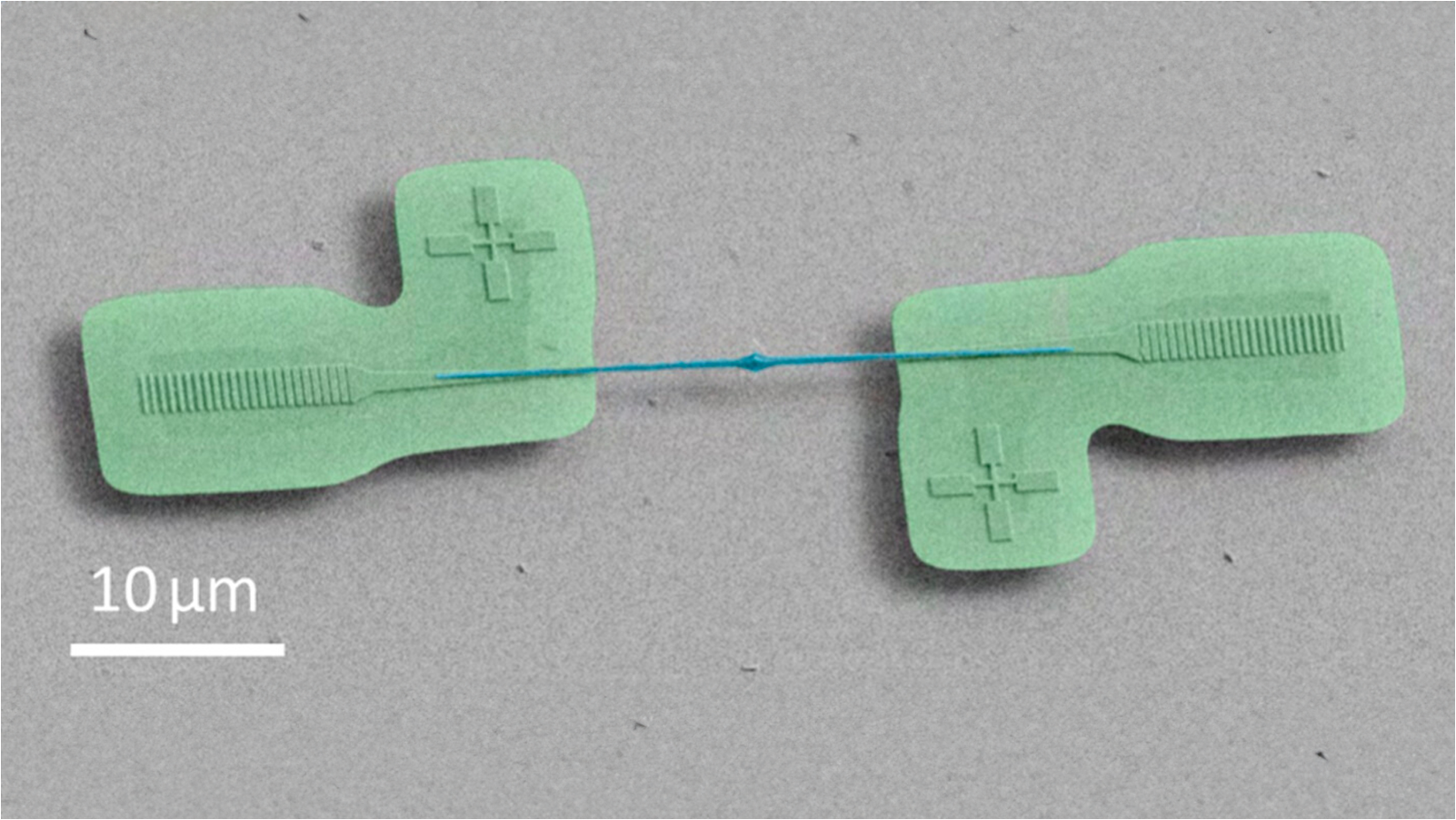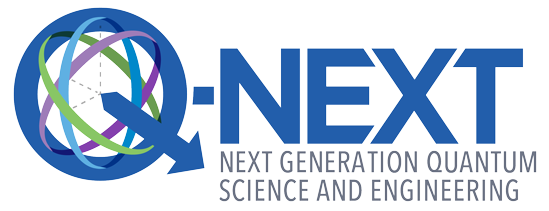qubit
-

A promising pairing: Scientists demonstrate new combination of materials for quantum science
Diamond and lithium niobate are often touted as high-performance quantum materials. Now scientists have combined the two materials as a single quantum device. In a study reported in ACS Photonics, researchers sent light from the diamond to the lithium niobate and measured the fraction of light that successfully made it across. The result: An extraordinary 92% of the light made the jump from diamond to lithium niobate. Read More
-
Embracing imperfection for quantum technologies
From Physics Today: Q-NEXT Director David Awschalom co-writes a comprehensive rundown of the use of atomic defects as qubits. These solid-state spin qubits are unlocking applications in nanoscale quantum sensing and are at the forefront of creating distributed, long-distance entanglement that could enable a quantum internet. Read More
-
Sound is manipulated for quantum information processing
From Physics World: University of Chicago's Andrew Cleland and team show how sound can be used to create two quintessentially quantum effects: superposition and interference. As a result, sound-based technologies could soon be used to create quantum computers. Read More
-

-
HRL Laboratories silicon encoded spin qubits achieve universality
From HRL Laboratories: HRL Laboratories, LLC, has published the first demonstration of universal control of encoded spin qubits. This newly emerging approach to quantum computation uses a novel silicon-based qubit device architecture to trap single electrons in quantum dots. Read More
-
Intel quantum wisdom: Think quantum is powerful? You’re right. Think it will happen soon. You’re mistaken!
From HPCwire: Intel's James Clarke, a member of Q-NEXT, talks about the company's quantum strategy, goals and achievements. Read More
In the News
See all In the News-
The best qubits for quantum computing might just be atoms
From Quanta: Mark Saffman of the University of Wisconsin–Madison and Infleqtion is featured in this comprehensive overview of neutral-atom qubit research. Read More
-
How quantum computing could help us understand the universe
From PBS NewsHour: David Awschalom appears in this piece on the next generation of computing, one that will be far more sophisticated and dependent on understanding the subatomic nature of the universe. Read More
-
PME-led research into protein-based qubits earns $2.75M Moore Foundation grant
Bolstered by a new $2.75 million grant from the Gordon & Betty Moore Foundation, a team led by University of Chicago's Peter Maurer will soon study qubits made from protein. Read More
-
Infleqtion unveils 5-year quantum computing roadmap, advancing plans to commercialize quantum at scale
From Quantum Insider: Infleqtion shares a broad business update, including the first look at its new 5-year quantum computing roadmap. The roadmap's centerpiece is Sqorpius, the next phase of Infleqtion’s quantum computing program. Read More
-
Bringing quantum entanglement to the people
From the National Science Foundation: NSF’S Quantum Leap Challenge Institute Hybrid Quantum Architectures and Networks at the University of Illinois Urbana-Champaign, a Q-NEXT partner, has created a working demonstration that brings entanglement between photons to a public setting for the first time. Read More
